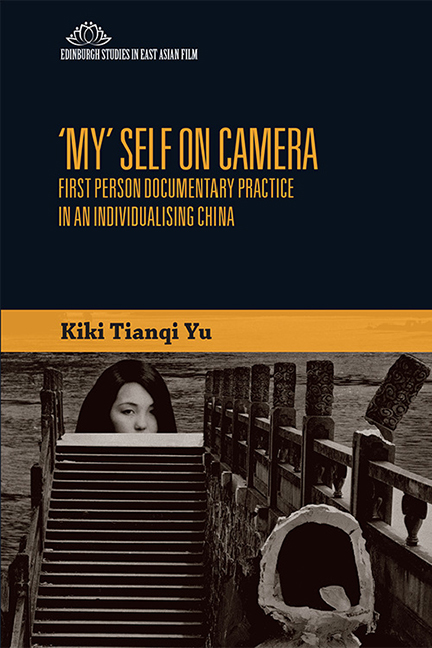Book contents
- Frontmatter
- Contents
- List of Figures
- List of Main Terms with Chinese Translations
- List of Names with Chinese Character Translations
- Acknowledgements
- Dedication
- Introduction: Action, Amateurness and the Changing Sense of the Individual Self
- 1 Female First Person Documentary Practice: Negotiating Gendered Expectations
- 2 Amateurness and an Inward Gaze at Home
- 3 Nostalgia toward Laojia: Old Home as an Imagined Past
- 4 First Person Action Documentary Practice: Longing for a More Politicised Space
- 5 The Problematic Public Self: Ethics, Camera and Language in Contestable Minjian Public Spaces
- 6 Camera Activism: Provocative Documentation, First Person Confrontation and Collective Force
- 7 Whose Self on Camera? Motives, Mistrust, Disputed Authenticities
- 8 From Fragile First Person Documentary Practice to Popular Online First Person Live Streaming Broadcast – Zhibo: Changing Intentions, Changing Individual Selves
- Filmography
- Bibliography
- Index
4 - First Person Action Documentary Practice: Longing for a More Politicised Space
Published online by Cambridge University Press: 10 November 2020
- Frontmatter
- Contents
- List of Figures
- List of Main Terms with Chinese Translations
- List of Names with Chinese Character Translations
- Acknowledgements
- Dedication
- Introduction: Action, Amateurness and the Changing Sense of the Individual Self
- 1 Female First Person Documentary Practice: Negotiating Gendered Expectations
- 2 Amateurness and an Inward Gaze at Home
- 3 Nostalgia toward Laojia: Old Home as an Imagined Past
- 4 First Person Action Documentary Practice: Longing for a More Politicised Space
- 5 The Problematic Public Self: Ethics, Camera and Language in Contestable Minjian Public Spaces
- 6 Camera Activism: Provocative Documentation, First Person Confrontation and Collective Force
- 7 Whose Self on Camera? Motives, Mistrust, Disputed Authenticities
- 8 From Fragile First Person Documentary Practice to Popular Online First Person Live Streaming Broadcast – Zhibo: Changing Intentions, Changing Individual Selves
- Filmography
- Bibliography
- Index
Summary
‘In the beginning was the camera.’ I try to forcibly generate action with the camera. I try to wrench it into existence. With deliberate force.
Hara Kazuo (2009: 7)Outside of the domestic space and family relations, I am eager to see how individuals stand alone, in their own space or in the public spaces. In a transitioning society that destabilises conventional social and ethical norms, how do individuals interact with others: strangers, friends, colleagues, fellows, the older and the younger, women and men, in multiple public spaces? In my second fieldtrip to China in spring and summer 2010, I did notice an increasing number of young individuals using cameras to approach others, and to document their own fragmented and almost suffocating personal lives in their own private spaces.
Wu Haohao and Xue Jianqiang are two young filmmakers that stand out from the crowd, making some noise in the independent film community. Whereas all the first person films analysed here carry a certain level of reflexivity and performativity, and emphasise authorship through the use of voiceover, direct physical appearance on camera, or through an amateur home video aesthetic, Wu Haohao and Xue Jianqiang put their role as ‘author-performer’ more explicitly in their films. Influenced by the practice of the Japanese filmmaker Hara Kazuo, both filmmakers term their practice as ‘action documentary’. Apart from the conventional documentary action of recording the reality, the action taken by this form of performative first person documentary foregrounds provoking, interacting and interrogating, and places these interrogations at the centre of the films. Their practices are the outcome of their almost indulgent self-exploration in the individualising China, and their consequent active reaching out from their personal space, crying for communication and recognition. Recognised as being very different from previous independent filmmakers in China, the two have provoked intense debates among local critics, filmmakers and scholars. Through their ‘action documentary’ practice, they express a strong desire for a community, a more public space where they can find emotional resonation, social acceptance and societal engagement in the beginning of their adulthood.
- Type
- Chapter
- Information
- My Self on CameraFirst Person Documentary Practice in an Individualising China, pp. 100 - 121Publisher: Edinburgh University PressPrint publication year: 2018



